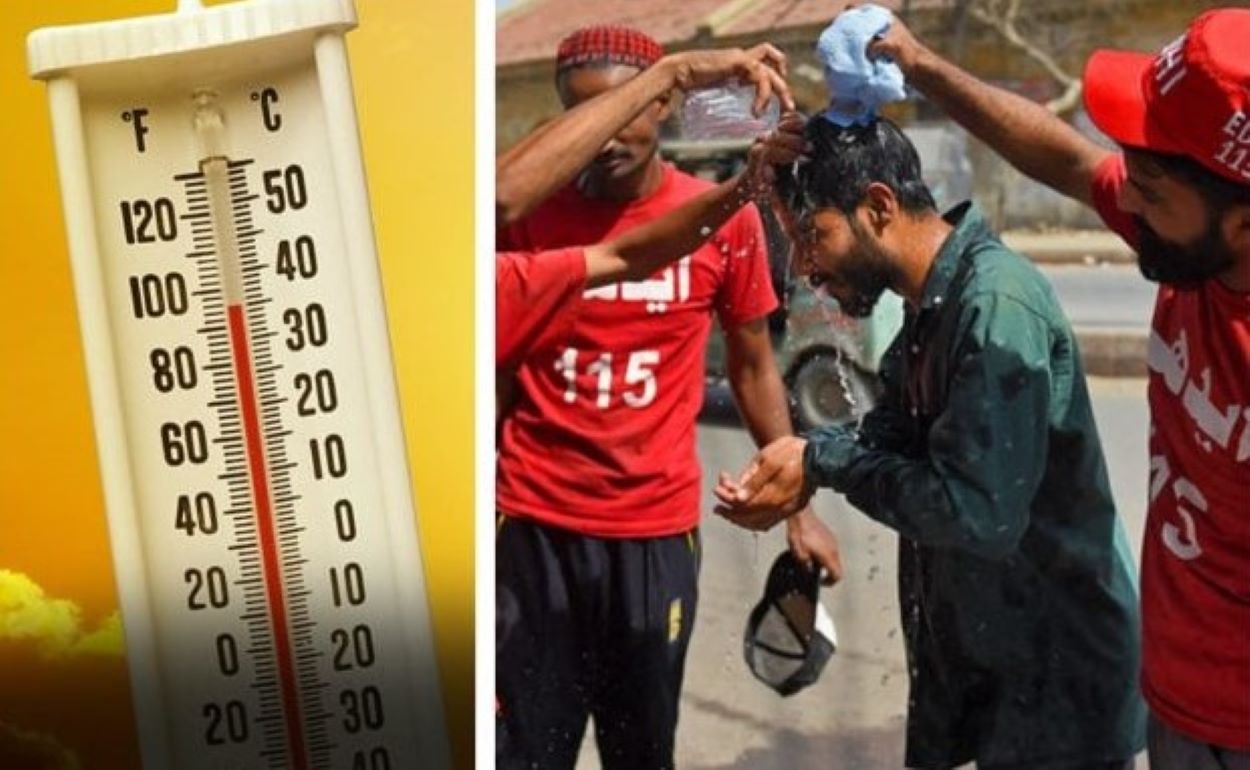The Pakistan Meteorological Department (PMD) is facing a severe heatwave in June 2025, with temperatures soaring to as high as 50°C in several regions. This extreme heat is expected to continue until June 13 and poses significant health risks, leading authorities to implement urgent safety measures.
The PMD reports temperatures 4–7°C above average in Punjab, Khyber-Pakhtunkhwa, Kashmir, Gilgit-Baltistan, Sindh, Balochistan, and southern Punjab. Bhakkar recorded the highest at 50°C, followed by Dera Ghazi Khan and Noorpur Thal at 49°C, and cities like Gujranwala, Hafizabad, and Sargodha at 48°C. Major urban centres, including Lahore, Faisalabad, and Multan, face temperatures between 45–47°C, worsened by high humidity levels, such as 56% in Multan.
The Punjab Provincial Disaster Management Authority (PDMA) warns that plains areas will remain extremely hot through June 13, with dusty winds expected in the afternoons.
The intense heat increases the risk of heatstroke, particularly for children, the elderly, and those with health conditions. The PMD advises avoiding direct sunlight from 11:00 AM to 4:00 PM, staying hydrated, and wearing light-colored cotton clothing. Citizens are urged to limit outdoor activities and seek indoor shelter during peak hours. The PDMA helpline (1129) is available for immediate assistance in emergencies.
Government Response and Relief Measures
Relief Commissioner Punjab Nabeel Javed and PDMA Director General Irfan Ali Kathia have directed officials to remain highly alert. Measures include:
- Providing cold drinking water at public places, bus terminals, and marketplaces.
- Prioritising water supply in drought-prone Cholistan.
- Establishing heatwave response counters with essential medicines at major hospitals.
Read: Pakistan Heatwave Alert: Temperatures Soar 5–7°C Above Normal Until June 12
Pakistan’s heatwave aligns with rising global temperatures due to climate change, which is exacerbating challenges in a country prone to extreme weather. The PDMA’s proactive measures reflect lessons from past heatwaves, but long-term strategies, such as green infrastructure, are needed to address recurring crises.






